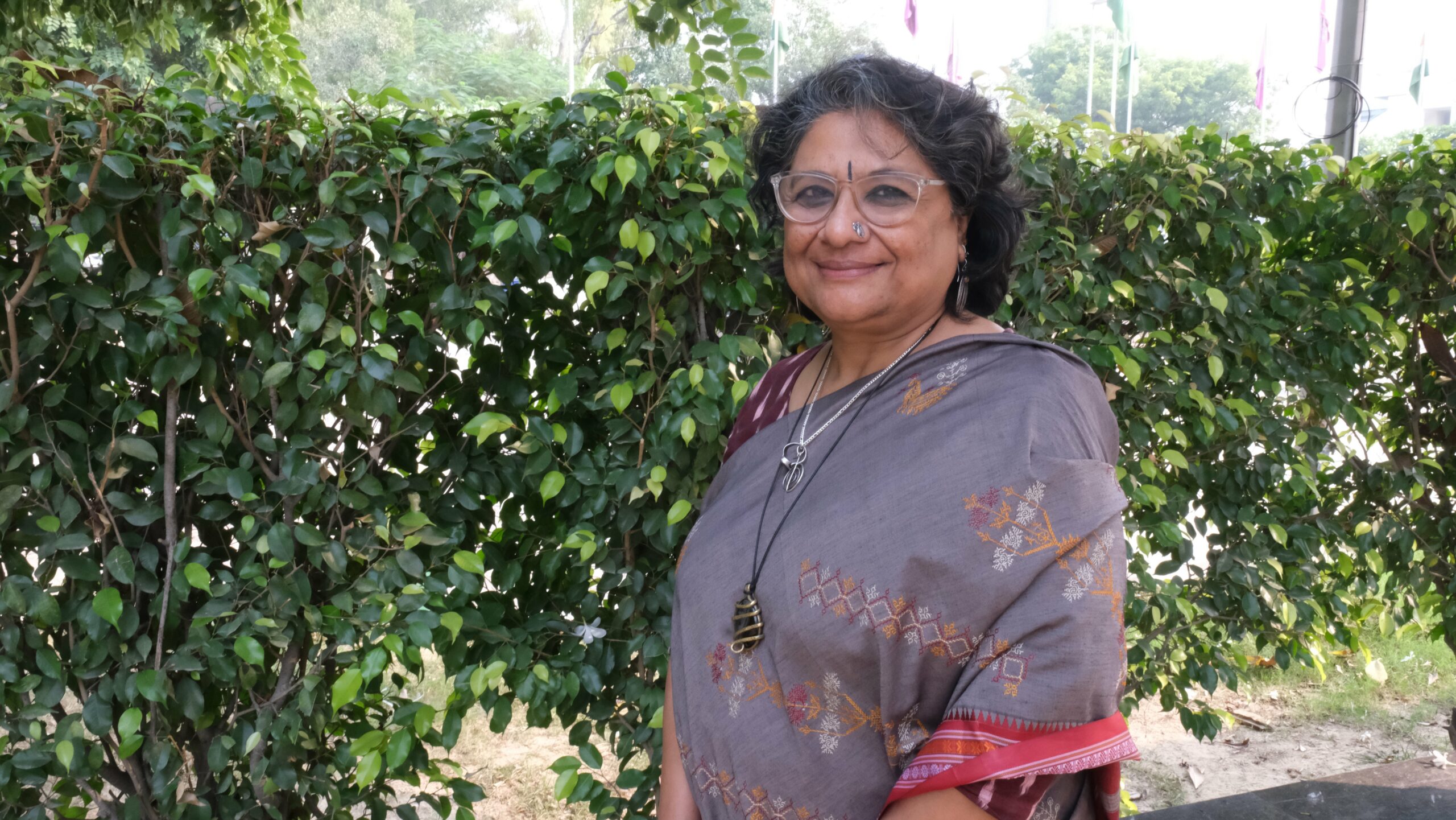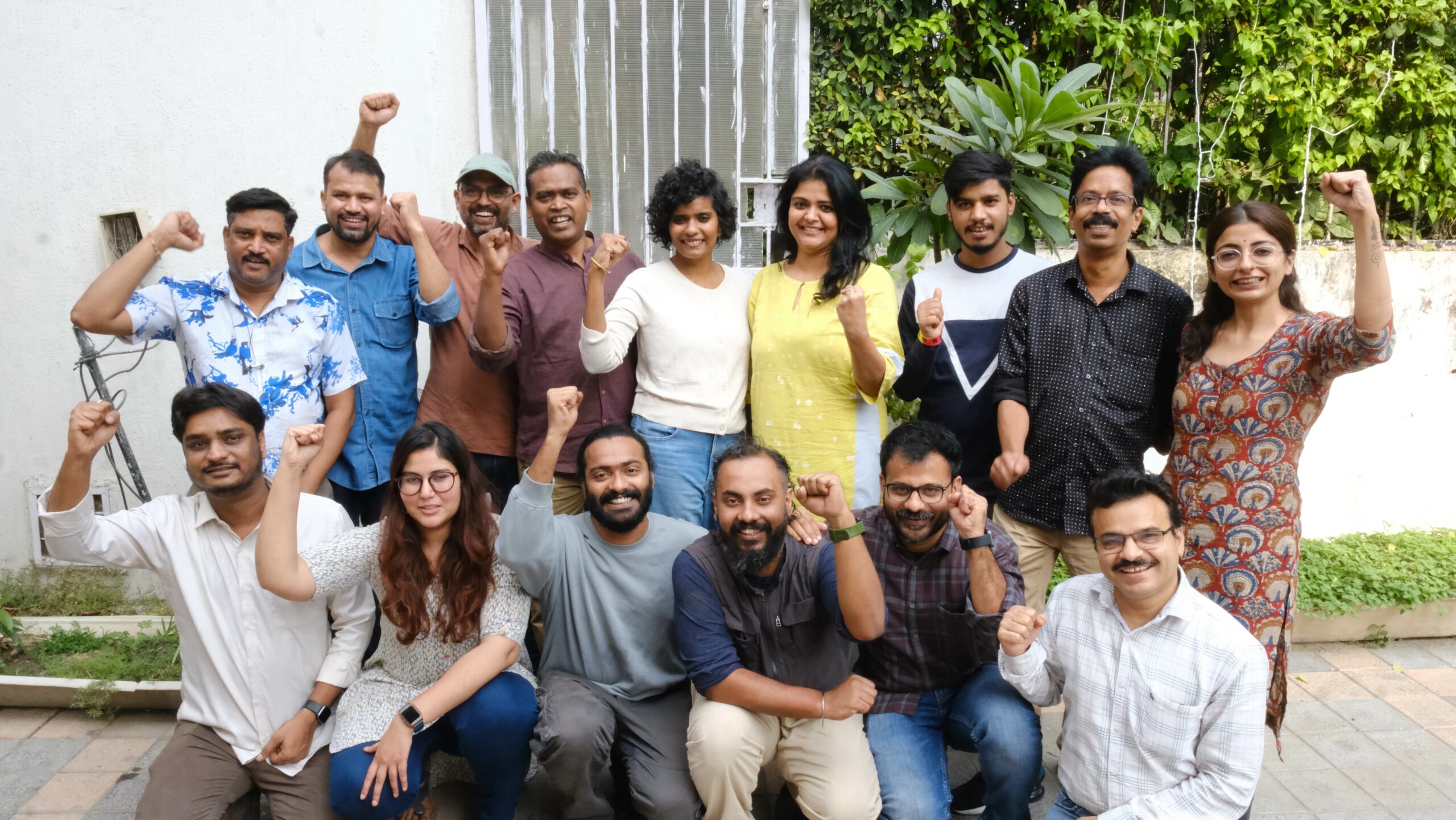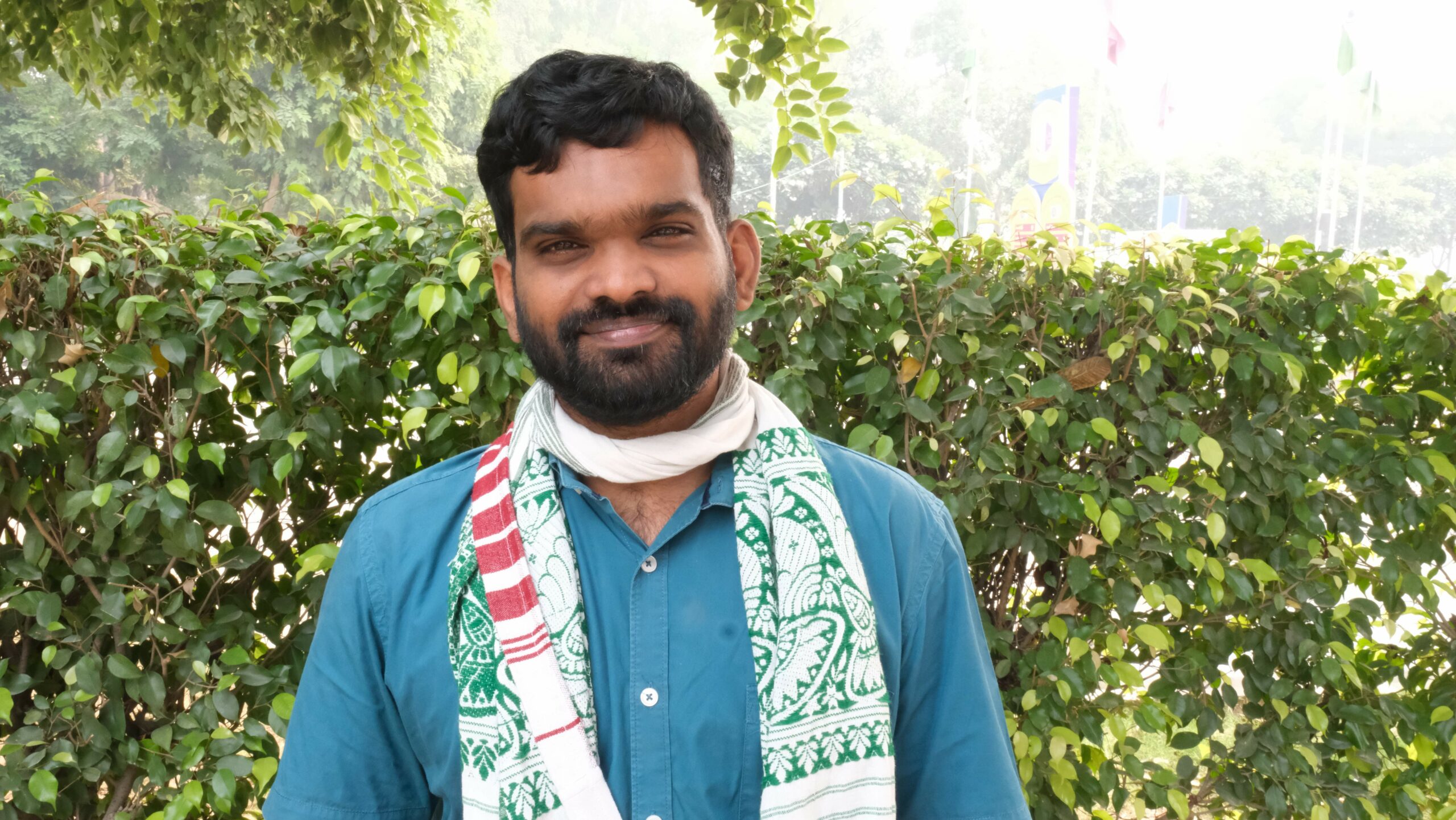2023-12-20
The pioneering organisation, which turned 40 in 2023, blends community-based activism and mentorships for younger generations to support and encourage Indigenous Peoples and rural communities in India.
For 40 years, the Society for Rural Urban and Tribal Initiative (SRUTI) has been a pioneer in working for social change and human empowerment in India.
At the core of its success is a network of fellows and volunteers in 15 of India’s 28 states. Working in disadvantaged communities, many dedicate their lives to helping give marginalised people a voice, strengthening their rights and improving livelihoods. These fellows are often a mirror of the communities they serve, cutting across generations and representing India’s rich tapestry of cultures and languages.
“In these 40 years, almost three generations of activists have come to us as young people and made their journey through the fellowships,” said Enakshi Ganguly Thukral, who is president of SRUTI’s executive board and has been involved with the organisation for more than 30 years. “With these small fellowships, the fact that they are able to mobilise people, create awareness and create people’s groups continues to be a felt need. And the need is growing.”
SRUTI has also made its mark by supporting the land tenure rights of Indigenous Peoples and local communities and is one of three Tenure Facility partners in India. Along with the Indian School of Business (ISB) and Vasundhara, a research and policy advocacy group based in Odisha state, they are working to assist more than 19,000 communities to use the Forest Rights Act (FRA) of 2006 to secure community forest resource rights over 4.6 million hectares in several states.
Despite progress made on recognising tenure rights and expanding certification, hurdles remain. SRUTI’s fellows have an ear to the ground when it comes to understanding community-level issues. They are often involved directly in creating awareness of land tenure rights and working with villagers and government officials to improve the land certification process.

Enakshi Ganguly Thukral is president of SRUTI’s executive board.
Promoting dialogue and understanding
In a concerted effort spanning the states of Bihar, Chhattisgarh, Jharkhand, Odisha, Tamil Nadu, Uttarakhand, and Uttar Pradesh, SRUTI has organised 20 capacity-building workshops to enhance the knowledge and capabilities of community leaders and officials in implementing the FRA. SRUTI fellows in these states have played a leading role in informing communities about their rights.
Some fellows point out that FRA provisions on tenure rights are not enforced equally across India, while landmark laws to protect India’s forestlands and biodiversity are being watered down. For instance, amendments to the Forest Conservation Act of 1980 and the Biological Diversity Act of 2002 make it easier to acquire and develop land for commercial purposes.
But at the local level, SRUTI’s fellows and volunteers work to encourage cooperation between residents and the authorities. “SRUTI is very good at bringing different conflicting parties to the table,” says Amulya Nayak, a fellow since 1997 who works in in Odisha. He added that “forest rights are not just about title, they are about the people taking charge of the land and the government helping to facilitate that.”
Advances in mapping and hand-held technologies have made access to information more transparent and allow for more efficient process of land claims.
But not all communities have braced such digital solutions. Indeed, some remote areas are concerned that using technologies could compromise their privacy or give companies easier access to natural resources. SRUTI fellows say in these cases, they try to provide information, but they do not compel rural dwellers to adopt technologies they are uncomfortable with.
"Forest rights are not just about title, they are about the people taking charge of the land and the government helping to facilitate that."
Mobilisation power
With 40 years behind it, SRUTI has amassed a wealth of knowledge and experience that is beneficial well beyond the villages and states where it works. For example, it played a prominent role in organising the International Learning Exchange (ILEX) that took place in November 2023.
Called ‘Radical Forest Futures’, the ILEX brought together participants from across India as well as indigenous leaders, grassroots community organisations and civil society groups from Latin America, Africa and other Asian countries, including neighbouring Nepal. SRUTI, ISB and Vasundhara were partners in the event along with the Policy Development Advisory Group, the School of Planning and Architecture in New Delhi, and the AJK Mass Communication Research Centre. Tenure Facility was a finance partner of the ILEX.
The three-day event allowed participants so discuss challenges shared by indigenous communities across the global south. It provided a platform to exchange experiences and ideas on land rights as well as women’s empowerment, youth engagement and sustainable livelihoods.
Thukral, who spoke to Tenure Facility during a break at ILEX, found the cross-generational and international make-up of the event encouraging. Furthermore, she explained, it was organised and led by the front-line defenders of land and communal rights. In this respect, it was like SRUTI itself.
Referring to one participant who travelled to Delhi from a remote village, she said; “To know that her struggles are similar to struggles in a country called Brazil, which she may or may not know about, helps to not just open your mind, but also to give everyone a larger frame of reference. This is a global struggle.”

Shweta Tripathi, executive director (in yellow), and the SRUTI staff at their office in Delhi.
Solidarity through song
Beyond the often lively panel discussions, there were poignant moments when participants joined hands and expressed their struggles and hopes through song. Two SRUTI fellows, Ulka Mahajan from Maharashtra state and Devendra, of Rajasthan, led the international group in calls to action at ILEX. ‘We shall overcome,’ Devendra sang during a ‘March of Diversity’, a reminder that words can be a powerful tool in supporting indigenous peoples, marginalised communities and other actors.
Shweta Tripathi, SRUTI’s executive director, wants to sustain the momentum of the ILEX. “We are all protecting about forests, but we have to work together and to learn from each other. I want the connections between these different countries to keep going.”
Such connections are important, especially against the backdrop of climate change and growing commercial pressures on forests and other ecologically diverse areas. “Land is just a commodity for some people. For indigenous communities, this is not at all the case,” Tripathi says, adding that land is a part of these communities’ cultural and ancestral traditions.

Vikash Kumar is a SRUTI volunteer in Jharkhand state.
Grassroots educational initiatives
Establish in 1983, SRUTI has grown from a small organisation to one whose outreach extends to more than 7,000 Indian villages. It has more than 30 fellows and 100 volunteers in 15 states. Its School for Social Change (SSC) provides non-formal education to young women and men and to help them become more engaged with their communities and encourages building vibrant exchanges of ideas and information.
Vikash Kumar, who has participated in the SSC, says it helps young people who often have limited access to adult educational opportunities become more motivated and involved in their communities.
“Most of the time, the young generation, we don’t question things,” he explains. “SSC makes us think.”
Now a young volunteer with SRUTI fellow Arvind Anjum in Jharkhand state, Kumar promotes education, reading and awareness in the villages where he works. “You have to be passionate and work from your heart,” he says.
With many of SRUTI’s more senior fellows acting as mentors, the SSC draws on decades of experience in encouraging learning and social involvement. In addition, SRUTI has launched a popular online youth magazine in Odia, a language of Odisha, as well as Hindi and occasionally English. Though a print version had existed in the past, the online Yuvaniya magazine began during the corona lockdowns and has grown since. It draws on contributions both from young indigenous people as well as SRUTI fellows. Since its online debut, more than 650 articles have been published. A special edition for ILEX featured 15 articles focusing on forests and indigenous forest communities.
These kinds of ground-up and forward-looking initiatives motivate SRUTI’s leaders as the organisation enters its fifth decade. Tripathi, who studied literature at university and was involved in student and social movements before joining SRUTI nearly 20 years ago, continues to be inspired by the spirit and commitment of the organisation’s network of fellows, volunteers and the communities it supports.
And despite the many challenges facing Indigenous Peoples and other marginalised groups across the world, Thukral sees SRUTI’s continued activism at the grassroots level, coupled with the international solidarity shown at events like ILEX, as reason for hope. “If I wasn’t an optimist I wouldn’t carry on. I get up every morning and say there is a reason to fight. Let us put up a good fight.”
Articles